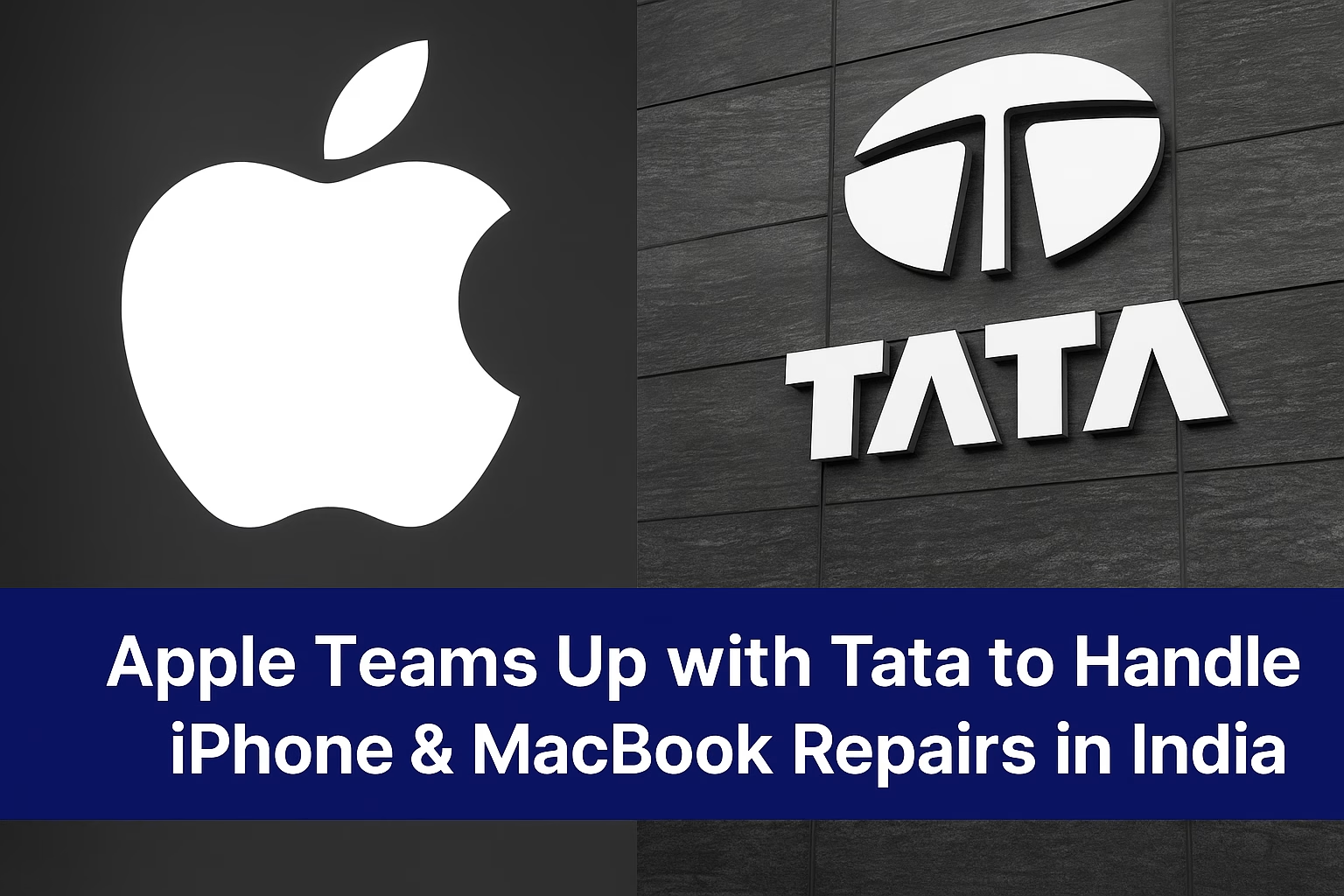Apple Inc. has entrusted India’s Tata Group with all board‑level and other complex repairs for iPhones and MacBooks sold in the country, widening a fast‑growing partnership that already covers local assembly of the flagship smartphone. The service mandate will shift over the next quarter from Wistron’s Indian unit, ICT Service Management Solutions, to Tata’s state‑of‑the‑art facility at Naraspura, Karnataka.
Why Apple Is Making The Switch
- Scale & Speed: Apple now sells roughly 11 million iPhones a year in India, up from barely 2 million four years ago. The brand’s market share has climbed from 1 per cent in 2020 to about 7 per cent today.
- Integrated Campus: By housing repairs next to assembly lines, Tata can stock genuine parts, reuse specialised tools and turn around devices faster than a third‑party depot.
- China‑Plus‑One Strategy: Apple has been diversifying production and after‑sales operations beyond China to cut geopolitical risk. Its executives say a growing share of U.S.‑bound iPhones will soon carry a “Made in India” tag.
How The New System Will Work

- Front‑Line Service: Apple Authorised Service Providers nationwide will still replace screens, batteries and cameras.
- Central Depot Repairs: Logic‑board faults, data‑line corrosion and power‑management failures will be routed to Tata’s Karnataka campus, where technicians trained under Apple’s Global Service Exchange programme will perform micro‑soldering and component‑level diagnostics.
- Same‑Day Dispatch Goal: Apple and Tata have set an internal target of returning 85 per cent of depot‑level devices to customers within five business days, compared with 10–14 days today.
Consumer Benefits
- Shorter Downtime: Faster depot repairs mean less waiting for users in non‑metro towns, where shipping times add most of the delay.
- Better Parts Availability: Tata will receive direct weekly part consignments from Apple’s Singapore hub, reducing the likelihood of “awaiting spares” status updates.
- Potential Refurb Storefront: Industry analysts believe an Indian Certified Refurbished Store could follow once a steady pipeline of repaired devices exists. That model already operates in the United States and Europe.
Tata’s Expanding Apple Mandate
The conglomerate now:
- Assembles four iPhone models across three plants in Tamil Nadu and Karnataka.
- Owns 60 per cent of Pegatron Technology India, which runs an iPhone factory near Chennai, after a January 2025 buy‑out.
- Manufactures metal casings and certain precision components for Apple’s global supply chain.
Adding repair services completes a “make‑and‑maintain” loop that few suppliers worldwide handle end‑to‑end.
Industry Context
India is the world’s second‑largest smartphone market, yet premium handsets remain underserved for repairs. According to Counterpoint Research, out‑of‑warranty board fixes can cost up to 40 per cent of an iPhone’s original price when parts are imported piecemeal. Centralised, high‑volume repair hubs are expected to reduce those costs by leveraging economies of scale and customs duty benefits on bulk spare imports.
Expert View
“Bringing complex repairs in‑house with Tata is Apple’s way of locking in quality while scaling quickly,” said Prabhu Ram, Head of Industry Intelligence at CyberMedia Research. “It also signals confidence that Indian technicians can meet Cupertino’s exacting standards.”
What Happens To Wistron?
ICT Service Management Solutions will continue to service laptops and PCs for other global brands, but its Apple volume will taper off by September, people familiar with the transition said.
Next Steps
- Pilot Phase: Test batches of MacBook logic boards will be processed at Naraspura in July.
- Nationwide Roll‑out: All Indian service centres will begin routing iPhone depot jobs to Tata by October.
- Customer Communication: AppleCare is expected to update its support pages to reflect the new repair turnaround timelines before Diwali.
The Bottom Line
Apple’s decision solidifies Tata Group as its most versatile partner outside China, spanning manufacturing, component supply and now professional repairs. For Indian consumers, that should translate into quicker fixes, genuine parts and, eventually, more affordable access to refurbished Apple devices.






